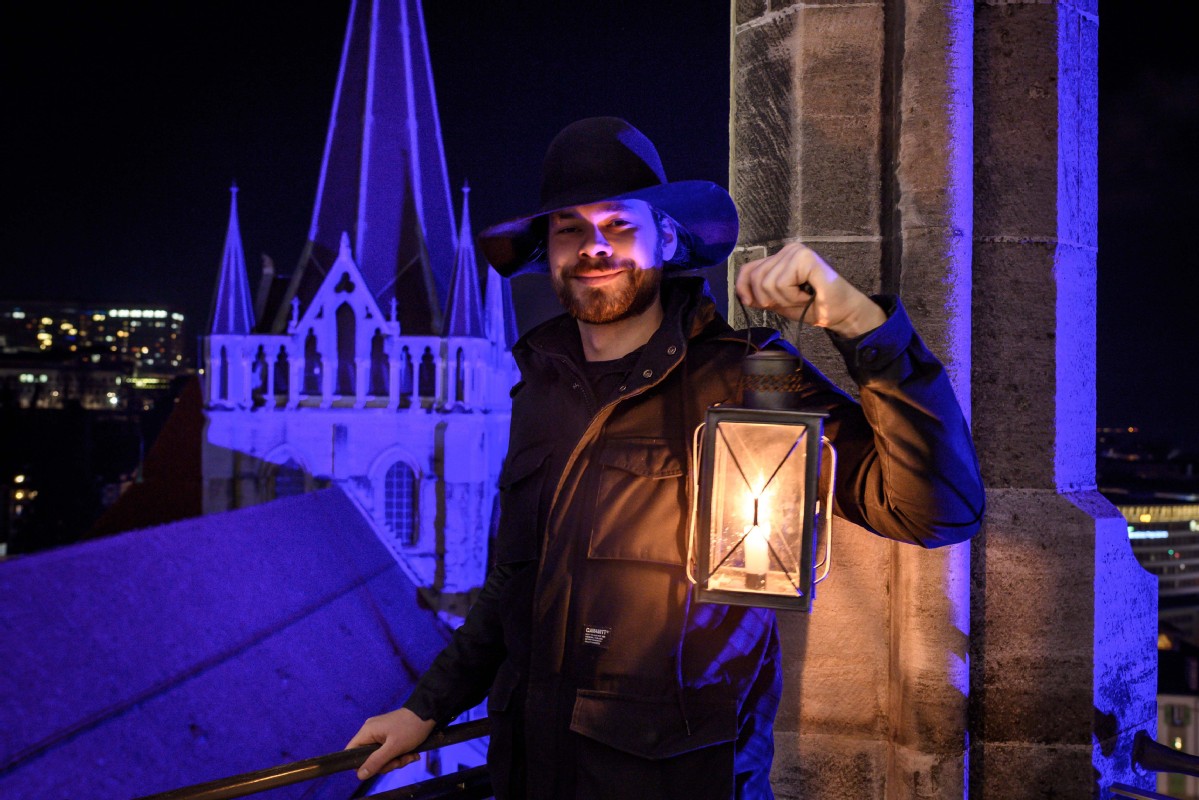Watchman not your standard Swiss watch
China Daily | Updated: 2019-01-21 09:34

LAUSANNE, Switzerland - Every evening, the night watchman clambers to the top of the Lausanne cathedral bell tower and gets to work: he shouts out the time each hour, keeping a six-century-old tradition alive.
The night watchman, one of the last in Europe, no longer alerts this Swiss city to fires, but he does help residents to keep track of the time.
"This is the watchman! The bell has tolled 10. The bell has tolled 10."
On a cold night in December, Marco Carrara, who takes on the job on the permanent watchman's days off, repeats the message hourly, only changing the number of chimes that have rung.
Cupping his hands around his mouth, he allows his voice to carry across the rooftops, just as his predecessors have done every evening since 1405.
All year round, from 10:00 pm to 2:00 am, the night watchman, wearing a big black hat and carrying a lantern, steps out to the bell tower railing to serve as a living clock for the people of this picturesque city on the shores of Lake Geneva.
Changing times
The night watchman used to play a far more vital role.
Back when fire constituted a permanent threat to medieval towns and cities built in wood, he was an essential part of a network of watchmen, most of whom patrolled the streets.
From his perch, the cathedral watchman was tasked with sounding the alarm at the first whiff of smoke.
Across Europe, there were "thousands, if not tens of thousands" of watchmen protecting urban spaces from fire, said Renato Haeusler, who holds the permanent watchman position in Lausanne.
But as technology advanced, the once ubiquitous position became largely obsolete and the watchmen all but disappeared across the continent.
Today, Lausanne is one of just seven European towns or cities to have maintained the tradition of a year-round watchman, alongside Annaberg, Celle and Noerdlingen in Germany, Ripon in Britain, Krakow in Poland and Ystad in Sweden.
In Lausanne, the watchman used to be entrusted with manually ringing the bell on the hour, but in 1950, the task fell to automation.
Haeusler acknowledged that his position no longer served a true practical purpose.
But "the city is very attached to maintaining this tradition", stressed the 60-year-old, who served as replacement watchman for 14 years before taking on the permanent position in 2002.
David Payot, a member of Lausanne's municipal council, agreed.
"This is a way of making history come alive," he said.
In the early 1960s, an announcement that the night watchman's hours would be reduced - he used to call out the time from 9:00 pm until dawn - was interpreted by many as a precursor to scrapping the post altogether.
The city was flooded with letters demanding that it maintain the job, Payot said.
Agence France-presse
























